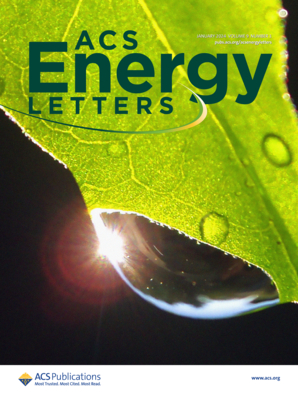核心知识中的婴儿在哪里?
IF 19.3
1区 材料科学
Q1 CHEMISTRY, PHYSICAL
引用次数: 0
摘要
我们对婴儿知识的了解--以核心知识提案为代表--也许缺少了婴儿本身的位置。通过将婴儿作为行动者而非观察者来研究,我们可以更好地理解人类智慧的起源,即感知与行动之间的衔接,以及人类如何在复杂的世界中思考和学习。本文章由计算机程序翻译,如有差异,请以英文原文为准。
Where is the baby in core knowledge?
What we know about what babies know - as represented by the core knowledge proposal - is perhaps missing a place for the baby itself. By studying the baby as an actor rather than an observer, we can better understand the origins of human intelligence as an interface between perception and action, and how humans think and learn about themselves in a complex world.
求助全文
通过发布文献求助,成功后即可免费获取论文全文。
去求助
来源期刊

ACS Energy Letters
Energy-Renewable Energy, Sustainability and the Environment
CiteScore
31.20
自引率
5.00%
发文量
469
审稿时长
1 months
期刊介绍:
ACS Energy Letters is a monthly journal that publishes papers reporting new scientific advances in energy research. The journal focuses on topics that are of interest to scientists working in the fundamental and applied sciences. Rapid publication is a central criterion for acceptance, and the journal is known for its quick publication times, with an average of 4-6 weeks from submission to web publication in As Soon As Publishable format.
ACS Energy Letters is ranked as the number one journal in the Web of Science Electrochemistry category. It also ranks within the top 10 journals for Physical Chemistry, Energy & Fuels, and Nanoscience & Nanotechnology.
The journal offers several types of articles, including Letters, Energy Express, Perspectives, Reviews, Editorials, Viewpoints and Energy Focus. Additionally, authors have the option to submit videos that summarize or support the information presented in a Perspective or Review article, which can be highlighted on the journal's website. ACS Energy Letters is abstracted and indexed in Chemical Abstracts Service/SciFinder, EBSCO-summon, PubMed, Web of Science, Scopus and Portico.
 求助内容:
求助内容: 应助结果提醒方式:
应助结果提醒方式:


